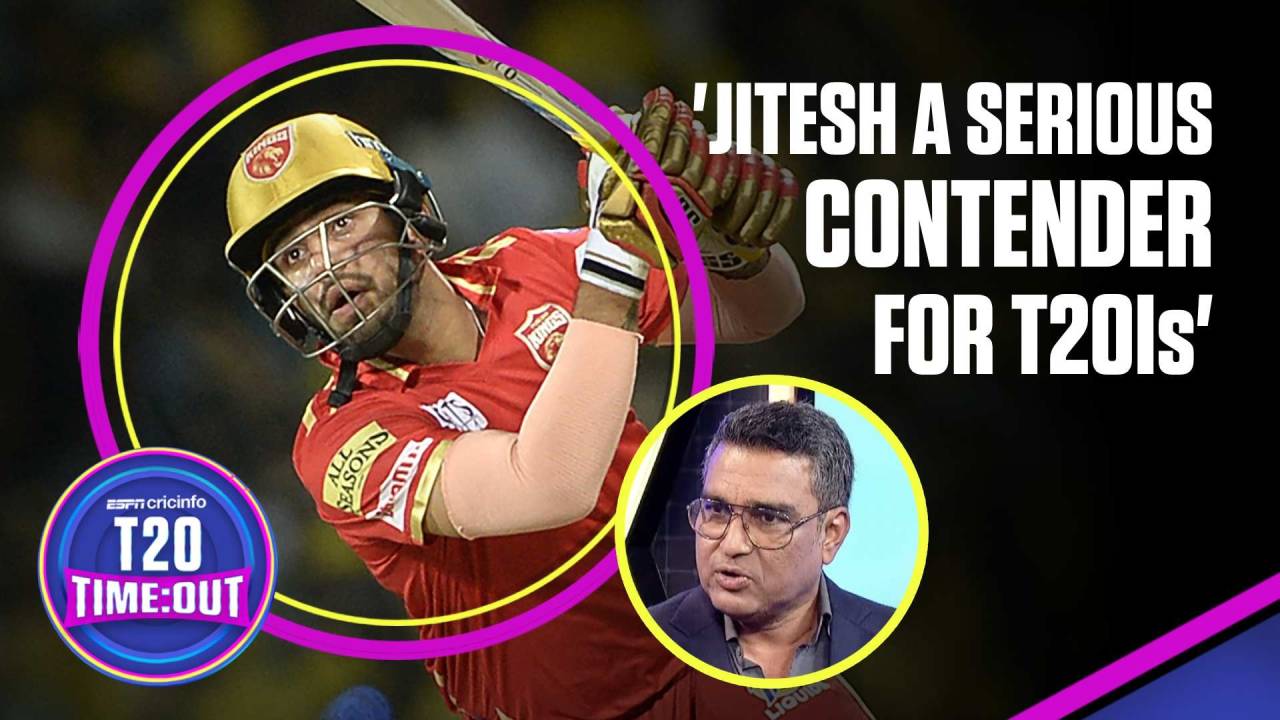Amid constant chopping and changing, Punjab Kings invest heavily in the future
In a difficult season, the franchise has backed the same players to deliver even if they hadn't quite done that earlier
Shashank Kishore
20-May-2023
The more things change, the more they remain the same. This common refrain perhaps best sums up Punjab Kings season after season; IPL 2023 was no different.
Take the last six seasons for example. They've had four designated captains - R Ashwin, KL Rahul, Mayank Agarwal and now Shikhar Dhawan - and four head coaches - Brad Hodge, Mike Hesson, Anil Kumble and now Trevor Bayliss.
This merry-go-round at the top can be unsettling for the players, at least the young Indian uncapped lot. But in what has been an anomaly, there's been a growing sign of the team backing the same players to deliver even if they hadn't quite done that earlier. Now, as they reflect on another season gone by, there's an opportunity for them to build on these investments as they begin to bear fruit.
Prabhsimran Singh joined the franchise ahead of 2019 but had only played six games across four seasons. This year, he had the role clarity. To give them explosive starts and allow Dhawan to anchor the innings. It wasn't a blockbuster season, but his 358 runs in 14 innings at a strike rate of 150.42 provided more than glimpses of his ability.
His 65-ball 103 on a Kotla deck against Delhi Capitals where most batters struggled on the two-paced nature of the surface told you of a special player who is capable of taking pitches out of the equation when in his element. Prabhsimran's backing is unlike what the Kings have done, but here's is a chance for them to help elevate his game.
"I think the talent was always there with him, the maturity has changed," Kings' bowling coach Sunil Joshi said. "He started thinking about the game. He started thinking and respecting the bowlers also. That has helped him a lot, staying calm in different situations."
Then there's Shahrukh Khan who has been branded a finisher for years now and has been with Kings for three seasons. The raw numbers will tell you he doesn't have a T20 fifty across 33 innings in the IPL.
He has failed more than he's succeeded, and perhaps that's simply down to the nature of his role, but the one common factor has been the team's faith in him. This year, he featured in all 14 games but only once batted over 20 balls in an innings.
On Friday night, he delivered, albeit belatedly. His 23-ball 41 not out at No. 7 gave Kings a total they didn't look like getting at one point. In doing so, he gave more than a glimpse into his methods.
It wasn't like he was blindly swinging at every delivery. He came into bat in the 14th over and saw out Yuzvendra Chahal's threat, fully knowing he could inflict damage later on a small ground. And against a wonky attack that has struggled in the death overs, he unleashed those big hits in the end.
Shahrukh doesn't premeditate; instead, he reacts to the ball and trains for it the same way. "I think my practice is paying off. I am reacting properly at practice to each and every ball I play. That's the reason it's paying off here," he said during the season. "If I go too cheeky, I don't think it will work for me. So, I just have one thing on my mind. I look to play straight. If anything is here and there, I try and adjust."

Jitesh Sharma ended the season with 309 runs at a strike rate of 156.06•BCCI
Such clarity isn't rare, but the ability to stick to methods that work for him and to have the belief that it will pay dividends, is.
Then there's Jitesh Sharma, whose rise has perhaps been a direct byproduct of the faith and opportunities the franchise has given him. He broke through last year after being scouted by Kumble and has shown a quality few Indian batters have - a no-holds barred approach, the ability to get go right from the outset with a fair degree of success.
His power game and calmness at the same time have come in for plaudits. Like it did on Friday night, when he walked in with Kings 50 for 4 in the seventh over. Now, this can cause a few doubts to a few. Jitesh was clear the scorecard wasn't a reflection of the surface and tried to pick his spots almost immediately.
Sure, it didn't come off, but the intent to go for it was unmissable. He somewhat made up for his relatively slow beginning - 30 off 23 - by taking apart Navdeep Saini for a sequence of 4,6,4 with each of the hits peppering different parts of the ground. In going for a fourth, he was out. But you could see he backed himself to go big once set. He ended the season with 309 runs at a strike rate of 156.06.
It's as much credit to Dhawan as it is to the team management that they've been willing to back players in roles they thrive at, even if it hasn't always paid off. Dhawan himself has had a tough first full season with the Kings, and their history is replete with constant chopping and changing.
Now is an opportunity for them to nip that in the bud and punt on this core that has given them an inkling of what is to come in the future with some backing and plenty of opportunities.
Shashank Kishore is a senior sub-editor at ESPNcricinfo
